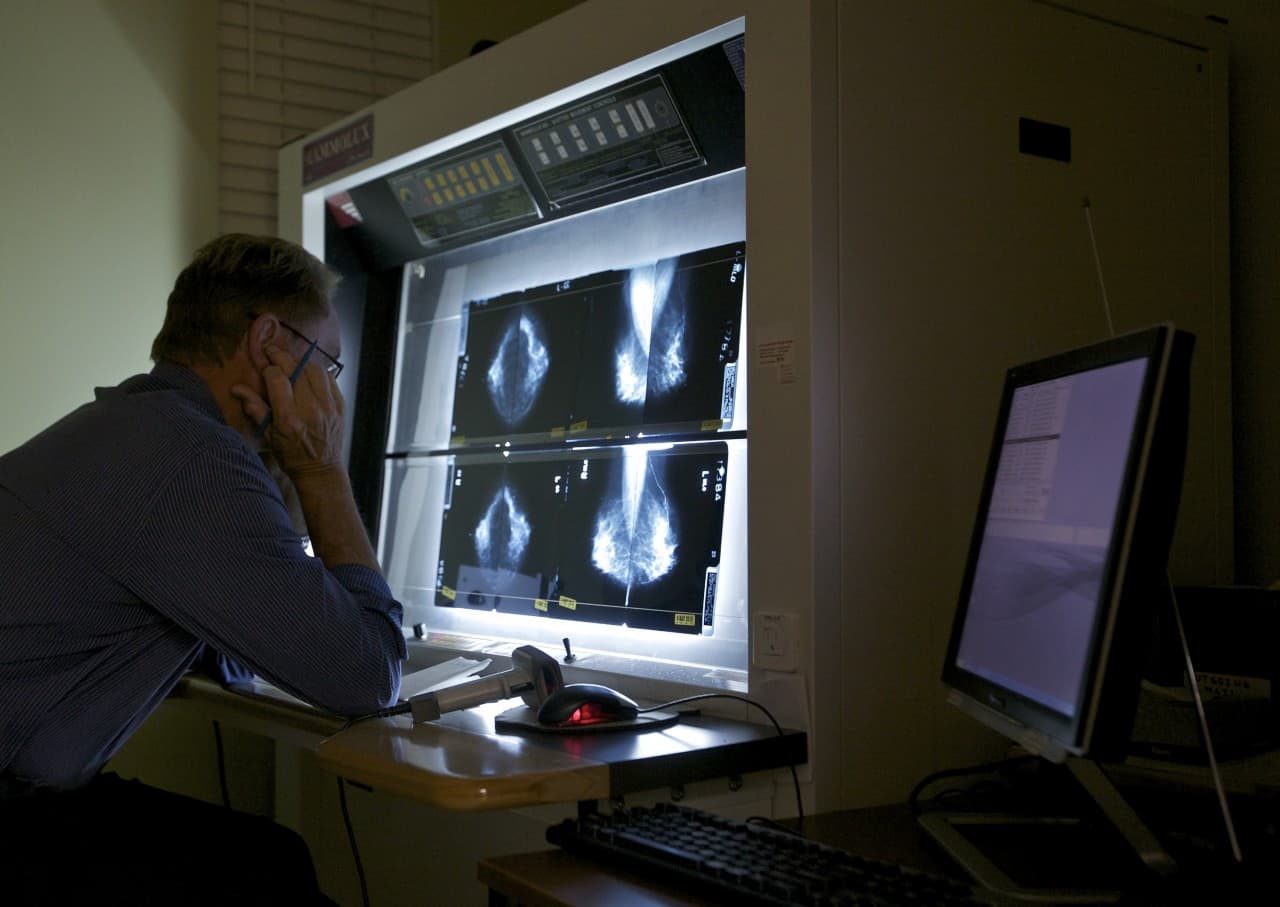Advertisement
Study Renews Debate Over Mammograms
Resume
A new study finds that annual mammograms for women between the ages of 40 and 59 make it more likely that doctors will find a cancer, but that the rate of mortality is the same in women who had mammograms and women who only had breast exams by trained nurses.
The study was published this week in The British Medical Journal and involved 90,000 women and lasted 25 years.
The study found that screenings caused harm — about half of all the cancers found by mammograms were not dangerous, but many of those benign cancers were treated anyway.
It adds to the simmering debate over the value of mammograms and what some in the field see as a serious problem: over-diagnosis of cancers which lead to unnecessary treatments.
Lead study author Dr. Anthony Miller said, "the rationale for screening by mammography should be urgently re-assessed by policy makers," while the American College of Radiology is calling the study, "deeply flawed," and "incredibly misleading."
Currently, both the American Cancer Society and the American College of Obstetricians and Gynecologists recommend that all women over 40 get annual mammograms.
Miller tells Here & Now's Jeremy Hobson the element that matters in decreasing mortality rates is the quality of the treatment.
"When you increase the treatment, when you improve the treatment, the role of screening gets less and less, " Miller said. "The solution is better treatment, and it is better treatment that we offered. "
Guest
- Dr. Anthony Miller, epidemiologist at the University of Toronto's Dalla Lana School of Public Health.
This segment aired on February 12, 2014.